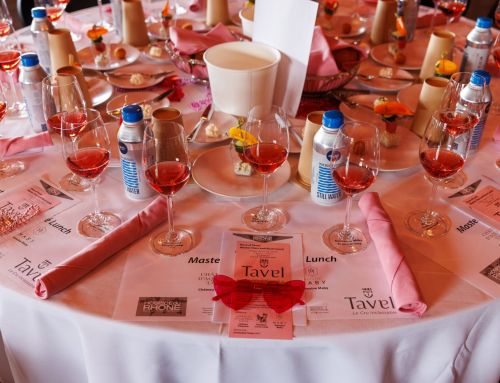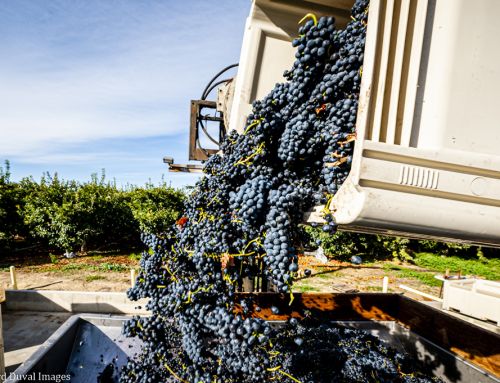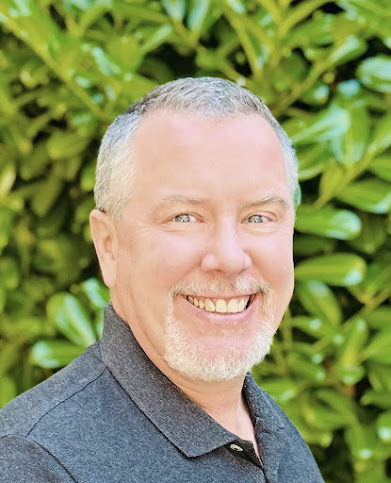
First things first. The name. “One can say ‘shildnecht’ as though the ‘k’ were absent, and it’s no big deal,” Schildknecht corresponded earlier this week. He reports, in case you haven’t heard this name before, that the world’s only concentrations of Schildknechts are in Switzerland and near Rotterdam where his ancestors are from.
Now the who. David Schildknecht is originally from the D.C. area. He spent 16 years as a wine retailer, first in D.C. and then in the Midwest. Schildknecht subsequently spent nearly a decade as an importer based in Cincinnati, where he has resided for close to 20 years. He has four children, with the youngest just finishing college, and has a love of marketing, cooking, and music.
Schildknecht started out writing about wine nearly two decades ago, covering France, Germany, Austria, Hungary, and occasionally California. Much of this work was for wine critic Stephen Tanzer.
In 2005 Schildknecht switched to writing for The Wine Advocate (TWA), leaving the import business the following year. His portfolio has included Germany, Burgundy, Loire Valley, and Alsace (“Oh God!” one winemaker exclaimed in horror due to the stylistic differences of these wines compared to Washington), as well as other areas.
Schildknecht also writes for Wine & Spirits, The World of Fine Wine, and Vinaria. He is a co-author of the 7th edition of Robert Parker’s Wine Buyer’s Guide and of Parker’s Wine Bargains. He is also among the many co-authors of The Oxford Companion to Wine 3rd edition.
So what might this new critic mean to the Washington and Oregon wine industries?
Schildknecht is the first to admit that Washington in particular is a new area for him. He has never visited the state’s growing regions and has tasted a limited number of its wines.
“I am only too humbly aware of my good fortune to have this assignment as well as of my relative inexperience, especially with the wines of Washington State,” Schildknecht says. “But there had to be a first time for visiting any of the many regions about which I have written, including those I’ve long since been pigeon-holed as a specialist in, like Alsace, Austria, or Germany.”
Schildknecht says his current experience with Washington is, “a combination of reputations and accident.” One of his first Washington wines was from Woodward Canyon back when the winery was just getting started. Schildknecht has also tasted wines from Leonetti Cellar and other top houses, saying he recently sought out a bottle from Cayuse Vineyards to see what all the fuss was about – “Ok … I get it,” he writes.
Schildknecht has greater familiarity with Oregon. As a retailer, he sold the state’s wines long before it was fashionable, offering wines from Adelsheim, Eyrie, and others, including the first vintage of Rex Hill. More recently, Schildknecht attended the 2009 International Pinot Noir Celebration (IPNC) in Oregon.
What can Washington and Oregon wineries expect from Schildknecht as a critic?
A review of his work will show a thorough, disciplined writer who clearly has a love – and knowledge – of wine. Schildknecht notes that he has his eccentricities when traveling to wineries, tape recording his visits both to save time and to capture as complete an impression as possible. “That means I might have to pace and wander about or go into a corner but it’s not to sulk,” he says.
While he may write in German when he travels to France to help obscure his notes, Schildknecht says this doesn’t work stateside. “If you try this at home next thing you know one grower tells another, ‘If this guy starts babbling auf Deutsch, it’s a sure sign he’s crucifying your wine,’” he says.
At present, Schildknecht plans to visit the Pacific Northwest twice in 2012 with dates and details to be determined. The first trip will most likely be earlier in the year.
Schildknecht, who accepted the Pacific Northwest assignment in August though it was not announced until earlier this week, plans to begin his crash course by focusing on vineyards, geology, and viticulture. The subsequent trip will involve numerous winery visits as well as large format tastings. Schildknecht says he intends to start out tasting as broadly as he can to better understand the area.
How will Schildknecht score Northwest wines, and how will these scores compare to his predecessors? Only time will tell. Rightly or wrongly, many criticized his predecessor Jay Miller, saying scores were inflated and that his tastes leaned toward a riper, more extracted style. Many now wonder what a new reviewer – especially one who has focused on numerous European areas known for lower oak and lower alcohol wines – will bring.
Again, only time will tell. However, there is no doubt that Schildknecht will bring his own experience and perspective, much like Miller and Pierre Rovani did before him at The Wine Advocate. Should this be cause for concern and hand wringing?
Schildknecht doesn’t think so. Rather he hopes that his relative inexperience with the area will bring a fresh perspective. While he has a deep knowledge of wine, he comes to the area with a clean slate.
“Growers in Washington especially can rest assured that prejudicial opinions or preconceptions are totally impossible in the case of most of their wines … though I can of course only offer myself as a virgin to each once,” Schildknecht says.
Picture from erobertparker.com.







Great work, Sean. This is potentially a huge deal for Washington vintners and growers. After all, they say that a 1-point jump in ratings in a publication like WA can result in a 7 percent increase in sales. Think about the financial and reputational impact of that on a small producer — which make up the majority of our state's wineries. So it's very important for our industry to get some perspective on Mr. Schildknecht. (And I, for one, definitely appreciate your pronunciation guide on his name!)
"they say that a 1-point jump in ratings in a publication like WA can result in a 7 percent increase in sales"
That's an interesting number. Where does it come from?
Excellent article. Thank you.
Some of us Gewurztraminer and Riesling producers are very excited!
this will be an interesting transition. David S certainly has a fantastic palate. And 2010 and 2011 are the perfect vintages for him to be introduced to WA.
Acid and stems rule.
But what happens when the heat comes back in 2012 and Washington has a normal vintage??
Two trips in 2012 to hit 1200 wineries seems about right, too.
Keep up the good work Sean, and Paul G, and Rand.
The aforementioned horrified winemaker might be mildly comforted to know that I am also deeply devoted to the wines of the Languedoc and Roussillon; and as for wines of the "New World," I was extensively involved with the wines of South Australia and Mendoza during my time as an importer as well as with those of California (which I've followed from the beginning of my career – tasting vintage '68 Napa Cabernets first "hooked" me) … only, with the occasional exception of California I have simply never been in a position to publish tasting notes or detailed reports on wines from those regions.
I was amused but not surprised to see that Sean touched on the issue of "scoring." I was also perfectly pleased that he didn't bring this up during our interviews. I signed off the last of these in an e-mail to him as follows: "But wait … you forgot to ask me about points … everybody wants to know about points!
Oh, sorry, time's up ;-)" Seriously, I'm going to discover the answer to this one along with the growers and my readers, but anyone who canvasses my Wine Advocate reports on wines of drastically diverse styles and reputations from diverse regions should come away with a good idea of how I utilize the 100-point scoring system. (And anyone interested in my thoughts about methodology, my many, many postings on such matters over the years on the eRobertParker bulletin board can be recommended, especially to those having trouble sleeping at night, because if they don't put your mind at rest they will still put you to sleep.)
Canvassing even half the wineries in your State will not be possible in the first year, and perhaps not even the second. But I do have plans to throw a very wide net for samples and do considerable blind-tasting. That's a contrast with my approach in most other regions I cover, where I do my annual tastings almost entirely at the wineries; don't pretend to cover more than a small subset of producers; and feel confident about my perspective and my sources of inside information so that exploration of estates new to me is limited and extremely focused.
I find it interesting to read the banter about Miller’s score escalation. For some reason that concept never really rang true for me, which I put down to me being just a big fan of Washington State wines. But when I recently read Paul Gregutt mention Miller’s elevated scores on his blog, it got me to thinking. So I went and collected Miller’s scores on the Washington wines that have the greatest interest to me and wrote them down for the 2005, 2006, 2007 and 2008 vintages. The wines I chose were Leonetti Cab, Leonetti Merlot, Quilceda Cab, Woodward Canyon Old Vines, Woodward Canyon Merlot, Andrew Will Sorella, Betz Pere de Famille, Betz La Cote Rousse, Cayuse Bionic Frog and DeLille Chaleur Estate. I then compared Miller’s scores to Paul Gregutt’s scores in the Wine Enthusiast for the exact same wines. There were a total of 32 wines that both had reviewed in that sample over those vintages. Miller racked up a total of 3,017 points for an avg score of 94.28. On the same sample, Gregutt racked up a total of 3,038 points for an average of 94.94 points. I think that Paul Gregutt has to be acknowledged as one of the standard bearers in reviewing WA wine by virtue of his longevity and the breadth of his reviews. Given the similarity in scores, I question the validity of the claim that Miller has escalted scores on Washington wines. While my sample size is admittedly not exhaustive, I have seen no other statistical comparison to substantiate the inflation claim.
Sean, thanks for the great post – At Pacific Rim we are so EXCITED to have a Riesling specialist come to the State. Can't wait to meet David (if we make it on the list of course) and get some great prospective from him.
Cheers,
Nicolas @ Paficic Rim
Nicolas, definitely one of the interesting angles to David taking over coverage for TWA, which I didn't mention in the article due to space considerations, is his experience with Riesling and our state's abundance of it. I believe David will be able to bring a very interesting, unique perspective in this regard.
Sean,
Where did you see David S.'s comment about Cayuse??
Anon, this was via personal correspondence for this article.
Sean, this was a homerun! Great work. Thanks, Merlotman